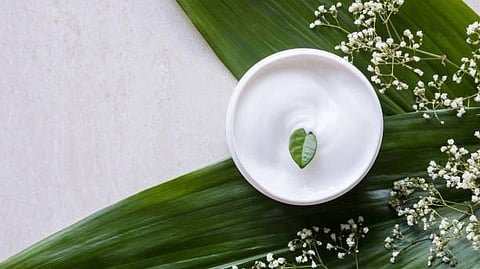

No matter what season or place, skincare remains the most important part of beauty regimes that keep changing with the times. Every skin concern has a different product and a different care regime.
Dark circles, pigmentation, and damage to the skin due to UV rays from the sun can be reduced effectively with a good skincare routine coupled with a balanced diet and good sleep. But with the market bombarded with so many products, it is often complex to choose what is best for our skin type.
The 'Farm to Face' beauty products are all the new buzz due to their cruelty-free, non-toxic, non-synthetic production. This also means that their negative impact on the environment is almost negligible as these products also engage in and promote 'Zero-waste' packaging.
The first phase in the production process, according to specialists, entails growing the ingredients on their farms. These ingredients are then transferred to research labs to be extracted in a way that gives the product its effectiveness.
Not all skincare use just Farm-grown ingredients. Organic products do need a small percentage of chemicals in them to increase their effectiveness and/or their shelf life. I mostly own all organic skin care as they are chemical free and I can use them generously without worrying about their side effects.
Nachiketha Rao, Customer
The majority of consumers like goods that are either attractive or affordable. The cheapest items, however, might not always be the finest because their ingredients might be subpar. The methods used in farming determine whether a product is organic or not. Natural items are not considered organic if they are grown with the aid of synthetic fertilizers and pesticides.
The biomagnification of poisons into the goods is a risk associated with synthetic fertilisers. Toxin accumulation in an organism's body that increases as it spreads from one creature to another through the food chain is known as biomagnification.
To combat this, "farm to face" cosmetic treatments employ insecticides like neem extracts mixed with cow urine in addition to cow dung and dried leaves as manure.
As every skin type is unique, one should choose the things they put on their skin with care. Not everyone can use only organic goods. When using good organic products incorrectly for the skin type present, things can go wrong. All the positive effects could have the opposite effect. Additionally, a patch test is usually advised before using any product, organic or not.
